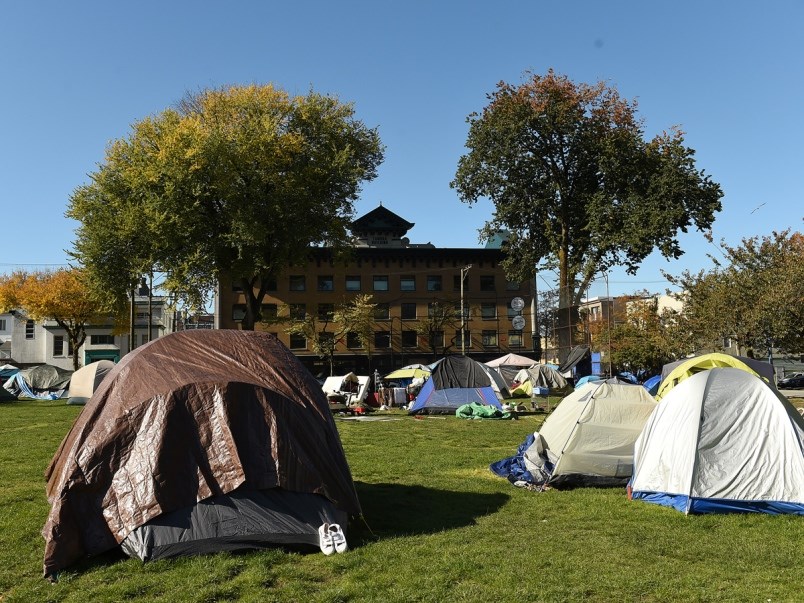As the “new normal” continues to reshape our society in so many ways, it is worth noting the pandemic is allowing governments at all levels to take actions previously considered almost unimaginable.
Take the public order issued by Public Safety Minister Mike Farnworth last week that will move almost 700 people from homeless camps in Vancouver and Victoria into hotels, where trained staff will provide 24/7 assistance of various kinds.
It is not unusual to house people in hotels or motels during a state of emergency, but until now that kind of measure has been used mostly to assist residents who have lost access to their homes during floods or forest fires.
However, the pandemic has had such a mammoth impact around the world that pretty well all international travel has ended, likely for quite a while.
Therefore, hotels are largely empty for the first time in history, thus allowing the provincial government the unique opportunity to use them to try to fix a chronic and growing problem.
Until the pandemic roared to life, no one seemed to have the solution when it came to dealing with homeless camps such as Oppenheimer Park in Vancouver, Topaz Park and Pandora Avenue in Victoria.
However, with the stroke of a pen on a public order document, extraordinary action is being taken that was never even in the cards before.
Of course, it is not clear whether the hotel solution will actually be a success. But for now, it seems like a much better option than leaving people to live in tents with poor sanitation.
Another public order, this one from provincial health officer Dr. Bonnie Henry, will have a dramatic impact on B.C.’s long-term care homes and assisted living facilities.
She is putting an end to the practice of people working in multiple facilities. In addition, Health Minister Adrian Dix has taken the further step of ensuring no workers will be hurt financially by earmarking $10 million a month to pay them.
The BC NDP has long had problems with both how long-term care homes have operated and the poor wages many employed in the sector are being paid. The pandemic unexpectedly provided a path forward by tackling two key issues in ways that might have taken months to accomplish in normal times.
Finally, governments at all levels are running extraordinarily high budget deficits as they try to craft financial aid programs for individuals and businesses at an almost frantic rate. And, understandably, few people seem to have a problem with this.
Prime Minister Justin Trudeau seems to announce new measures almost every day – some billions here, some billions there – as his government tries to keep millions of people financial afloat. They literally cannot get money out the door fast enough.
In B.C., the NDP government is in the midst of spending $5 billion on various assistance programs to help those unemployed, small businesses and tenants, which will result in one of the largest budget deficits in B.C. history.
That $5-billion figure will likely climb much higher before the end of the fiscal year, a scenario not really disputed by anyone in government right now (the federal deficit keeps climbing every week).
I suspect the public appetite for this kind of unusual government action and spending will be considerable for some time yet. The “new normal” is changing everything.
Keith Baldrey is chief political reporter for Global News.



